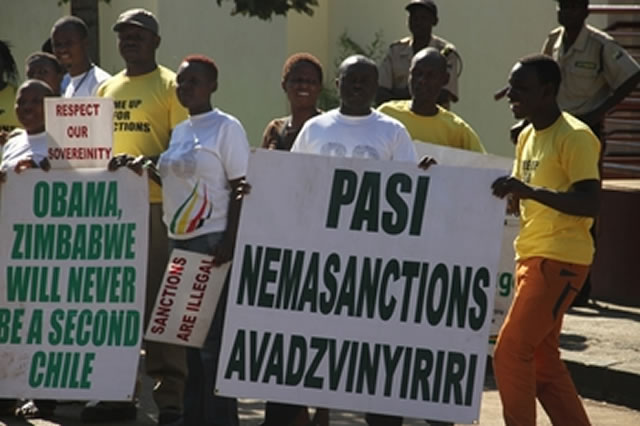Bilharzia drugs safe, says Govt

Health Reporter
Preliminary investigations into two of the three children who died two weeks ago after being administered drugs for bilharzia and intestinal worms have shown that one of the children died of diarrhoea and vomiting while the other one died of salmonella poisoning, the Deputy Minister of Health and Child Care has said.
Addressing a Press conference in Harare yesterday, Deputy Minister Paul Chimedza said investigations into the causes of the deaths would continue and a complete report was expected within the next three weeks.
He, however, expressed sincere condolences to parents of the three children saying Government’s intention was not to harm but to do well.
“Our hearts go to them, we want to pass our condolences. We are as concerned about this and as disillusioned as them,” Deputy Minister Chimedza said.
“It is never the intention of the ministry to do harm to any child, as parents ourselves and as custodians of the health care of this country. Sometimes in an intention to do good, in an intention to prevent harm to 4,7 million children incidents, completely unintended, like this do happen.”
He said apart from the death reports, Government also received several other reports of adverse effects such as diarrhoea, vomiting and nausea from children who took the drugs.
The deputy minister, however, said that the side effects are expected from the drugs.
Because of the enormous benefits of the two drugs praziquantel and albendazole in treating bilharzia and intestinal worms, Government would continue with the mass drug administration as planned in years to come.
“We are going to continue the mass drug administration next year until the five years as planned. It is a health strategy that we have put in place as a ministry but we will take as much precaution as is humanely possible to avoid any harm,” he said.
This is the second year the campaign is running in Zimbabwe targeting 4,7 million for intestinal worms and 3,1 million for bilharzia.
The campaign was necessitated by the fact that bilharzia and intestinal worms were on the increase across the country with an average district prevalence rate of 22,7 percent and 62,3 percent respectively.
If left untreated, bilharzia or intestinal worms lead to cancer, anaemia or stunted growth in children.
WHO representative in Zimbabwe Dr David Okello said the drugs used during the campaign had been recommended by the world health body.
Dr Okello said the same strategy was used in other African countries successfully.
“Preventive chemotherapy for schistosomiasis has been used successfully in Ghana, Mali, Burkina Faso and Sierra Leone where more than 75 percent coverage rates have been achieved,” he said.
He said in Southern Africa, Malawi, Zambia, Tanzania and Uganda carried out similar campaigns.
“When used correctly, these drugs are very safe but may cause drowsiness, dizziness or vomiting in some persons,” he said.
He said severe reactions were very rare but coincidental events may be associated with pre-existing illnesses.







Comments